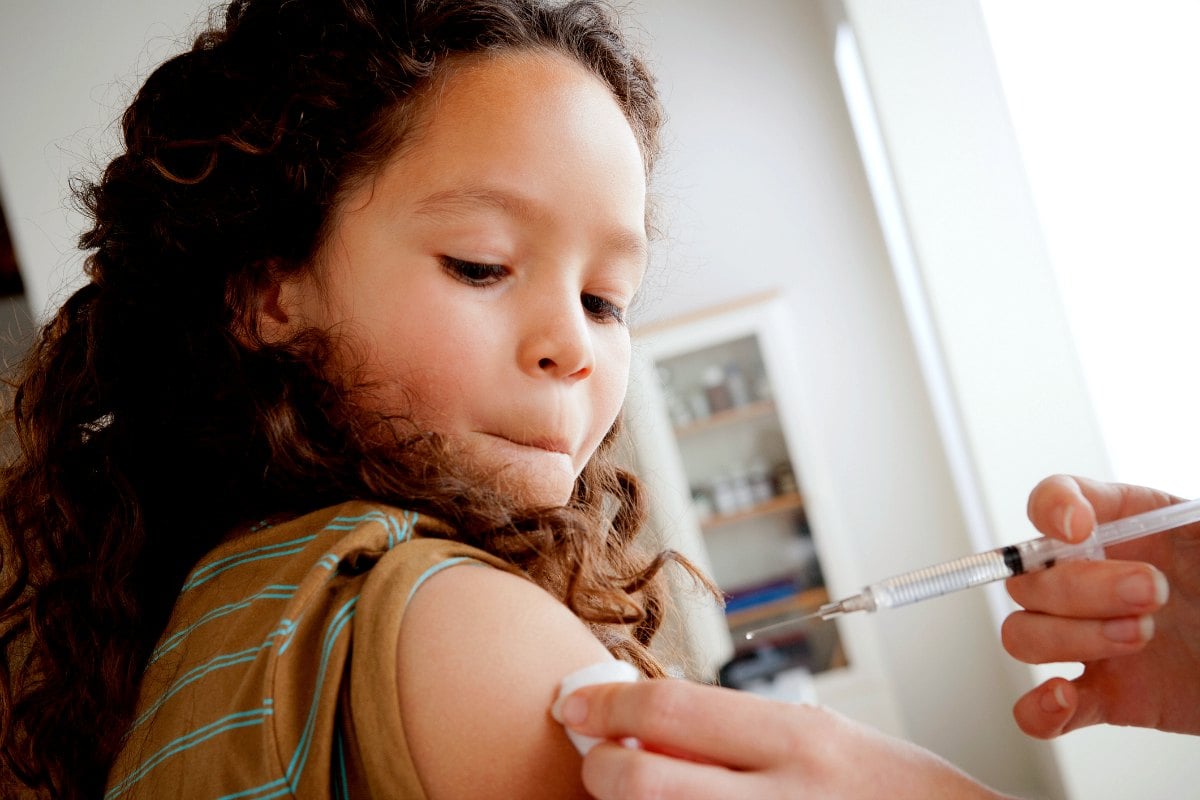
The childhood vaccine that wards off mumps, measles and rubella does not increase the risk of autism, a new Danish study shows.
Anti-vaxxers have long claimed the MMR vaccine can cause autism but researchers who studied more than 650,000 babies born in Denmark over 11 years found there is absolutely no association.
The vaccine does not increase the risk of autism, does not trigger autism in susceptible children, and is not associated with clustering of autism cases after vaccination, they found.
This is what former Prime Minister Malcolm Turnbull had to say to Mia Freedman about anti-vaxxers:
The study is yet another piece of evidence to debunk claims by anti-vaxxers that vaccinations are dangerous and can leave children with life-long challenges.
Those theories have been blamed for a drop off in vaccination rates in some places around the world, exposing kids to childhood diseases that are known to kill and cause permanent disabilities.
Researchers from Denmark’s Statens Serum Institut looked at 657,461 children born between 1999 and 2010. Of those, 6,517 were diagnosed with autism.


Top Comments
Staten Serum Institute's website reads, in the 'business development' section:
'We are open to mutually beneficial partnerships with academia, biotech companies and pharmaceutical industry in order to establish both scientific collaborations and value maximising commercial partnerships.
We are actively seeking out-licensing opportunities for our proprietary technologies and we are continuously searching for innovative technologies supplementing our existing technologies and R&D programs.'
i.e. They produce and sell vaccines. Thank you but due to conflict of interest, I won't be trusting their research thank you. Happy to read though the independent German research that shows neurological damage caused by vaccines in children with impaired gut bacteria.
You armchair academic conspiracy theorists are so cute. Happy to read one of many meta-analyses that consistently show no link between vaccines and autism?
https://www.ncbi.nlm.nih.go...
Oh yeah. So why haven't we moved on from the ridiculous theory of herd immunity?
Herd Immunity Theory Has Been Repeatedly Disproven
https://thevaccinereaction....
You really do post some uninformed rubbish. Herd Immunity fact has not been disproven, in fact, on the contrary. The latest hike in these diseases vs immunisation rates dropping in some areas, PROVES the Herd Immunity. The truth is those who promote anti-vax theories from anti-vax sites that lie and are full of half-truths and false claims are dangerous and sick, and deeply ill-informed.